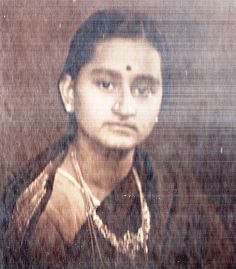
Visalam Balasubramanian was born in Pollachi, on May 17, 1925. She was the second of three children. Having lost her mother at about age 2, she grew up with her siblings, cared for by her father who lived out his life as a widower in Erode. She was married in 1939. Her adult life revolved entirely around her husband and four children. She was a gifted vocalist in the Carnatic tradition, and very well read. Visalam passed away on February 20, 2005.

Editor’s note: This is Part 1 of her memoirs, which has been edited for this website. Kamakshi Balasubramanian, her daughter, has added some parenthetical explanatory notes in italics.
I am setting out to write down, about myself, my memories, my impressions, and perhaps my desires also. All those who have known me intimately also know my nature, inclinations, likes, dislikes, prejudices and habits. As such, leaving a record of this kind is superfluous, but Papu, my second daughter and third child, whose full name is Kamakshi, has insisted on this for some years now. Radha, my last-born and fourth child, has also occasionally told me to either write down or tape them.
I will, of course, record faithfully my views. I shall also try to be as cogent as possible. With all these resolutions and command of language, still my narration would be amateurish.
***
My earliest memories begin with my grandfather. His love enveloped me. I don't have to elaborate. Really, I can't.